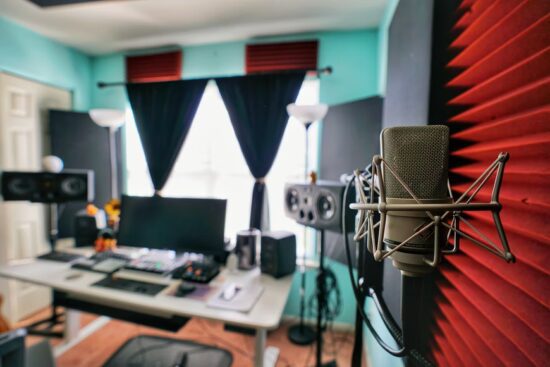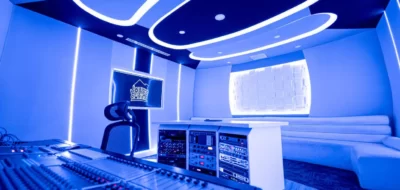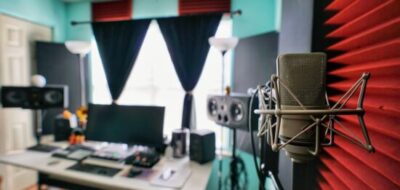It’s strange how, until you create your own recording studio, you don’t notice how noisy the world is. When heard via a good condenser microphone, all those backgrounds sounds you never really noticed before become uncomfortably clear. As a result, one of the first queries that people have is, “How can I soundproof my room?” In this article, we’ll try to precisely explain the methods for soundproofing your home studio and enjoy the comfort it will bring.
Choose a Suitable Room
Unless you have a good recording studio, your equipment is useless. If you don’t have a free existing room that you can turn into a recording studio in its entirety, you may have a closet or other tiny area that might be cleared out. A little room might limit your movement, but if you’re just getting started, it’ll suffice. Quiet should be your top priority. The folks at https://soundproofgeek.com/ suggest avoiding sharing walls with a bathroom, kitchen, or laundry room, as appliances may produce a lot of noise. Outside noise might also degrade your recordings. A room with no windows is also suggested. If your recording room has a window, use high-density foam tape, acoustical caulk, or acoustic putty to seal it firmly.
Insulation
Sound absorption panels, soundproof foam tiles, and bass traps, which are absorbers designed to suppress low-frequency sounds, are the best ways to outfit your room and soundproof it. Most home improvement retailers have rubber, cork, and foam panel insulation. Echo and boom can be reduced using less expensive solutions such as draping thick blankets or heavy drapes on walls and in corners. Mattresses and sofas can even be pushed against walls to absorb sound waves as well as prevent them from bouncing. Clothes and linens work in the same manner; just keep them far enough away from you so you don’t brush up against them and cause more noise. Foam gaskets should be used to prevent sound from reaching through air gaps in electrical outlets.
Carpet / Floor
Laying down thick carpets or rugs on the floor will assist. You can usually get them for a reasonable price at a thrift store, or you could even ask a carpet shop to give you scraps, miscuts, or sample squares. Building a floating floor that filters sound waves are a more effective solution that requires expert assistance (or sophisticated construction know-how). Adding a new layer of flooring that is detached from your present floor with hard rubber pucks or floor floaters is the simplest approach to creating a floating floor. Floating your current floor is a more difficult and expensive choice, but it involves accessing the joists beneath your sub-flooring, which isn’t possible in many places.
Doors and Windows
Because they have significantly less mass than the walls, doors, and windows will always be the weak link. In an ideal world, there would be no windows and only one door. We propose installing two strong, solid core fire doors, one on the old wall and the other on the new stud frames, in a double door system. To keep the door airtight, it should have a good seal. Windows should use acoustic glass, and dual glazing (a window on the current wall and a second window on the stud frame) is recommended, just as for doors.
Add a Second Layer of Drywall
Consider adding a second layer of drywall to your wall. If your walls are built of drywall, you’re willing to engage expert construction aid, and you can live with losing a few inches of space around the room. Install sheet block (a dense sound-absorbing substance) or sheets of mass-loaded vinyl on the inside of the new layer, leaving an air gap between the walls. Sound waves cannot enter or depart via your walls because of the sheet block and the second wall.
Plan the Project
It’s evident that soundproofing a studio area is a huge job once you comprehend the basics. Even if it involves weeks of effort, it’s preferable to tackle the whole project at once. When you add up the expenses of the contractor, the materials, and the time invested on the job, a soundproofing project may rapidly become prohibitively expensive. This is one of the reasons it’s critical to get expert assistance and plan everything ahead.

Having a soundproof room is very important if you’re planning to record audio. So, if you want to complete a task correctly, don’t go for quick and easy — it’ll get you nowhere. You may obtain fantastic outcomes if you take the mentioned advice and invest the necessary funds.










Pingback: How Can A Podcast Raise Awareness And Create An Impact - Indie Band Guru